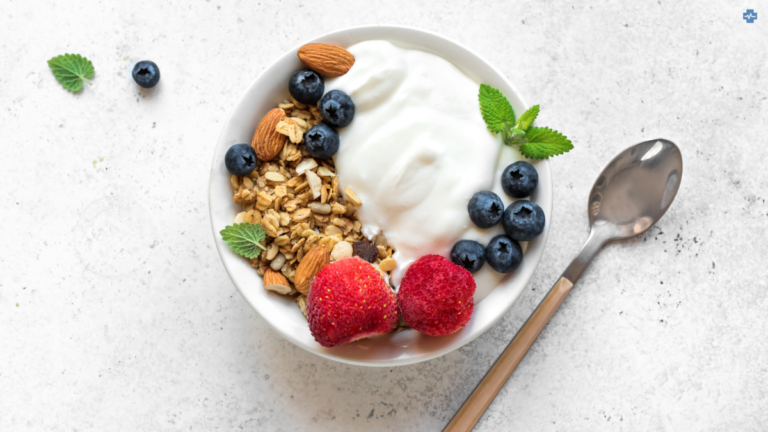A new study, published in Gut Microbes on February 12, 2025, from researchers at Mass General Brigham, has stirred up interest by linking long-term yogurt consumption to a lower risk of a specific type of aggressive colon cancer. In particular proximal colon cancer that’s positive for Bifidobacterium. This isn’t just a random hunch.It is built on data from over 132,000 participants tracked for decades through the Nurses’ Health Study and Health Professionals Follow-Up Study. Here’s the meat of it.
The researchers zeroed in on folks who ate two or more servings of yogurt a week. Think a small 150g cup twice weekly. The were compared versus those who barely touched it (less than one serving a month). After crunching the numbers over 26-32 years, they found that the yogurt fans had a 20% lower risk of developing Bifidobacterium-positive proximal colon cancer. This specific condition hits the right side of the colon and tends to have worse survival odds than cancers on the left side. Out of 1,121 colon cancer cases they analysed, about 31% had this Bifidobacterium in the tumor tissue. A bacteria you’ll often find listed on yogurt labels alongside Lactobacillus and Streptococcus.
Why’s this bacteria a big deal? The theory is that yogurt’s live cultures, like Bifidobacterium, boost the gut microbiome. Yes, that bustling community of microbes in your intestines. It sounds a little scary but a healthier gut might mean a stronger barrier against inflammation or toxins that could spark cancer. The study suggests that long-term yogurt intake (we’re talking years, not weeks) could nudge your gut flora in a protective direction. Particularly for this subtype of cancer. But here’s the unfortunate kicker. It didn’t show a blanket reduction in all colorectal cancers. Just this specific Bifidobacterium-positive proximal kind.
This case highlights the scientists struggles against cancer that has similar characteristics, but requires very different treatment regimes. This finding is a big win, nonetheless.
Yogurt’s Nutritional Breakdown
| Nutrient | Description |
|---|---|
| Probiotics | Live Bifidobacterium, Lactobacillus, and Streptococcus thermophilus. 10⁸ to 10¹⁰ CFUs per 150g serving. |
| Protein | 5-10g per 150g serving. Greek yogurt has higher protein content. Slows digestion, aiding SCFA production. |
| Calcium | 200-300mg per serving (20-30% of daily needs). Binds bile acids, reducing colorectal cancer risk. |
| Carbs (Lactose) | 4-6g in plain yogurt. Flavored versions have 15-25g due to added sugars, which may contribute to inflammation. |
| Fat | Low-fat: 1-3g, Full-fat: 5-8g. Fat itself is neutral but may aid in satiety for long-term consumption. |
| Extras | Plain yogurt is typically just milk and cultures. Greek yogurt strains whey for thickness. Avoid added sugars and artificial sweeteners. |
The Sugar Catch
Now, the sugar angle. The study didn’t break down yogurt types. Plain versus flavored was not examined but experts are waving a red flag about commercial options. Many store-bought yogurts are loaded with added sugars. Sometimes 15-20 grams per serving. An amount which could counteract the benefits. Sugar ramps up inflammation and feeds less-friendly gut bacteria, potentially undoing the good work of probiotics. Dietitians, like Sarah Pflugradt from the study’s commentary, point out that plain, low-fat yogurt with no added sugar is the safest bet. The idea is to let the bacteria shine without the interference of a sugar bomb. If you crave sweetness, tossing in fresh berries or any other fruit at home keeps it in check.
The gut health link isn’t new. Scientists have long suspected fermented foods like yogurt could fend off colon trouble. Bifidobacterium might churn out short-chain fatty acids (like butyrate) that lower inflammation and act as antioxidants. They are the ones shielding colon cells from damage. It could also tweak the gut’s pH or crowd out nastier bugs that produce carcinogens. The study hints that when Bifidobacterium shows up in tumors, it might signal a leaky gut barrier. This is where the intestine’s wall isn’t holding strong and letting bacteria slip into tissue. Regular yogurt could reinforce that barrier over time, cutting the odds of this cancer subtype cropping up.
This builds on earlier research, like a 2019 study in Gut showing men eating yogurt twice weekly had fewer precancerous adenomas. Or a 2020 meta-analysis in The American Journal of Clinical Nutrition tying yogurt to lower overall colon cancer risk. But the 2025 study’s twist is its focus on Bifidobacterium and tumor location, suggesting the benefit isn’t one-size-fits-all. Proximal colon cancer’s trickier to spot early (fewer symptoms, tougher screening reach), so a dietary edge here could matter.
It’s not a silver bullet. The study’s observational. No one was force-fed yogurt in a lab. So it can’t prove cause and effect. Participants were mostly white health professionals, which might not mirror everyone’s experience. Plus, yogurt eaters often live healthier lives overall. They have more fiber and less red meat which could skew things. And while the Bifidobacterium link is intriguing, the researchers admit they’re still piecing together why it’s there in tumors. Fighting cancer or just along for the ride?
So, should you stock up? If you like yogurt, it’s a low-risk add-on. Two servings a week isn’t a stretch. Go for plain, unsweetened stuff to dodge the sugar trap. Greek yogurt or other natural types pack more protein and probiotics too. You can pair it with fiber-rich foods (fruits, oats) to double down on gut love. Bacteria thrive on that combo. But don’t bank on it alone. Screenings, exercise and a balanced diet are still the most critical elements for colon cancer prevention.

